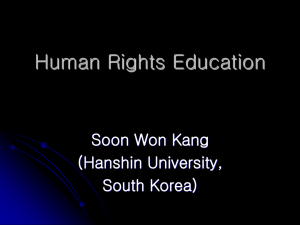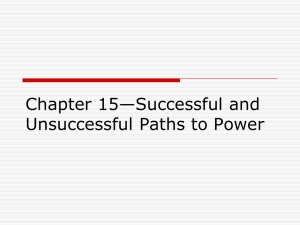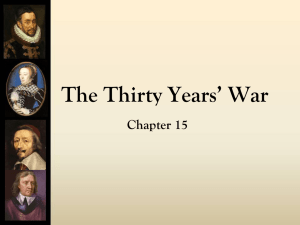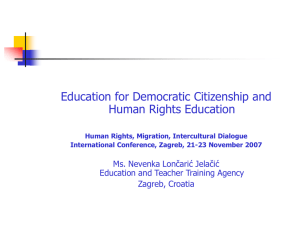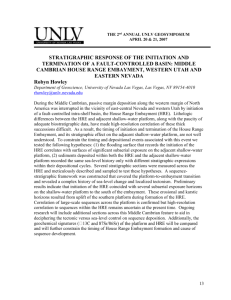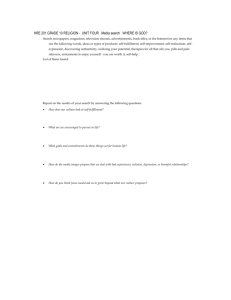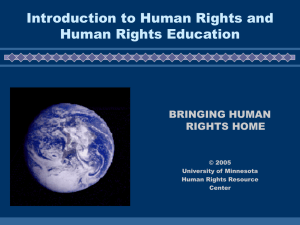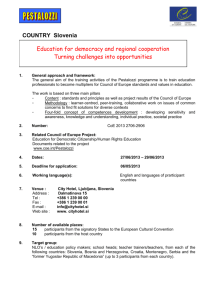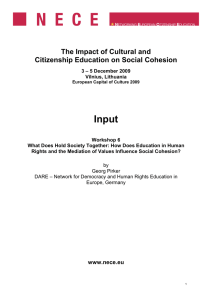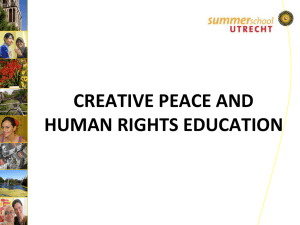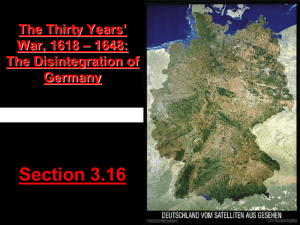Human Rights Education and Civil Society
advertisement
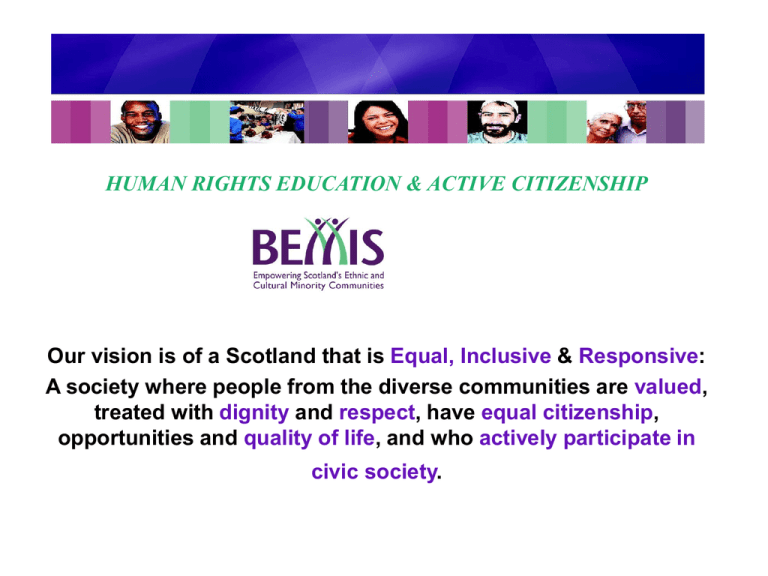
HUMAN RIGHTS EDUCATION & ACTIVE CITIZENSHIP Our vision is of a Scotland that is Equal, Inclusive & Responsive: A society where people from the diverse communities are valued, treated with dignity and respect, have equal citizenship, opportunities and quality of life, and who actively participate in civic society. •HRE DEFINITIONS & ACTIVE CITIZENSHIP Amnesty International: •Human rights education is a deliberate, participatory practice aimed at empowering individuals, groups and communities … Its goal is to build a culture of respect for and action in the defense and promotion of human rights for all (...) •Human rights education can also play a vital role in building social structures that support participatory democracies and the resolution of conflict, and can provide a common understanding of how to address political and social differences equitably and celebrate cultural diversity The United Nation Commission on Human Rights (UNCHR) A long-term and lifelong process: learn respect for the dignity of others and the means and methods of ensuring that respect is a core value in all societies Human rights education can be defined as education, training and information aiming at building a universal culture of human rights through the sharing of knowledge, imparting of skills and moulding of attitudes directed to: The strengthening of respect for human rights and freedoms; The full development of the human personality and its dignity; The promotion of understanding, tolerance, gender equality and friendship among all The enabling of all persons to participate effectively in a free and democratic society governed by the rule of law; The promotion of people-centred sustainable development and social justice HUMAN RIGHTS EDUCATION ENTAILS an INTERLINKED PROCESS: Knowledge and skills – learning about human rights and mechanisms for their protection, as well as acquiring skills to apply them in daily life; Values, attitudes and behaviour – developing values and reinforcing attitudes and behaviour which uphold human rights; Action – taking action to defend and promote human rights. Active Citizenship Definition Often defined as global: someone who is aware of wider world who respects the values of diversity, is outraged by social injustice, is willing to make the world a more equitable and sustainable place, and who participates in the community at global and local level HRE/Active Citizenship Key Concepts Dignity Respect Apathy Action Participation Equality Freedom Awareness Value Right to Voice Democracy Accountability Life long Learning Cultural Diversity Globalisation Common Understanding Role of Service Providers, Policy makers, NGOs HRE to be integrated with equalities Human Rights Education needs to be embedded into all policy & Practice provision: Human rights conceive HRE as being multidimensional : it seeks analysis of the structural causes of violation, discrimination poverty, rather than only its symptoms, and the impact of governmental action or inaction on communities experiencing inequalities and / or have their rights been abused. Sample Challenges for in deploying human rights education as a tool for Active citizenship: Service Providors: Lack of real awareness and knowledge of HRE Lack of Effective Training Fragmented approaches to HRE (detached from national policies) Community Groups: lack of knowledge and awareness of HRE; Exclusion & Isolation; Historic disadvantages and discrimination Stereotyping lack of respect / resources, etc What are the gaps in / barriers to progressing HRE/Active Citizenship agendas in Civil society & Service provision? Is there a need for more research, training, knowledge into the complex interaction of equality and human rights issues? Please state three things that you would like to see taken forward from this discussion?
